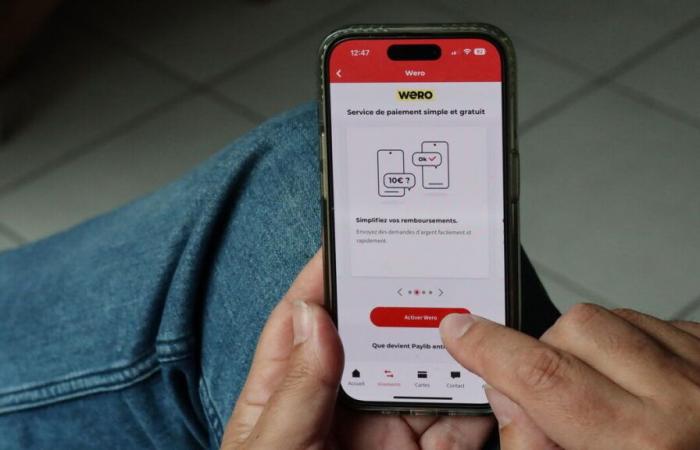Being able to transfer money instantly at any time of the day or night, for free, was already a reality for some French people. By this Wednesday, January 8 at the latest, this will be the case for everyone, individuals and businesses. Banks in the euro zone must comply with the new European regulation relating to instant transfers, which came into force last April, and which provides in particular that the price of an instant transfer cannot be higher than that of a transfer classic, which is free. All operations carried out online become de facto fee-free.
Until now, instant transfers over the Internet were generally charged at 1 euro. But they were already free in certain traditional networks, such as at the Banque Postale. But also in most online banks (BoursoBank, BforBank, Fortuneo, etc.).
By January 8 at the latest, all banks that did not yet offer the possibility of sending instant transfers will also have to convert to it. “For example, certain private or heritage banks only offered traditional transfers to their clients because it corresponded to their model,” explains Guillaume Yribarren, deputy director of consulting at Galitt and specialist in payments.
“A tool of sovereignty for the European Union”
Why is such a development encouraged by Brussels? “The objective is to make instant transfers the payment channel of the future at European level,” explains Maxime Chipoy, president of MoneyVox, an information site specializing in personal finances. Firstly because it makes it possible to reduce the proportion of payment methods which are not secure enough, such as checks. And above all, it is a tool of sovereignty for the European Union in the field of transactions. »
In particular because it allows you to free yourself from the American Visa or MasterCard payment networks by bank card. For example, the European payment wallet Wero, replacing Paylib for the transfer of money between individuals using instant transfers, should also make it possible to pay for purchases online and at merchants by 2026.
Enough to give a serious boost to instant transfers. Because according to the latest bulletin from the Banque de France dedicated to the digitization of payments, if its use increased by 84% in 2023 compared to 2022, they only represent 6.4% of the number of transfers, which themselves do not constitute only 16% of payments.
A beneficiary verification procedure
The transfer may be done in the second, but the addition of new beneficiaries will still not be the case. “Given the context of fraud, the sunset measures that exist in many banks before being able to make a transfer to a new beneficiary remain in force,” explains Maxime Chipoy. Sometimes you have to wait 24 or 48 hours. » Essential because with an instant transfer, the recall of funds is impossible in the event of a scam or fraud.
An additional security procedure must also be put in place no later than October 8. “The sending bank will have to verify the beneficiary with the receiving bank of the funds, that is to say, ensure that the account number corresponds to the identity of the beneficiary that you have provided, explains Guillaume Yribarren. The information must be presented to the client before the funds are released. And this control must be carried out on a European scale. »






